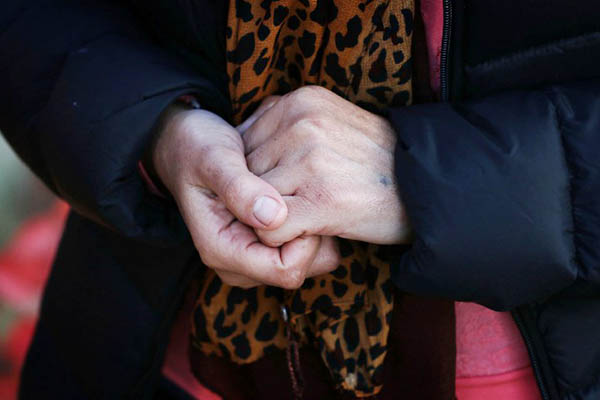
Safin Hamed—AFP
Several countries, including U.S., Bangladesh, China, Egypt took issue with parts or all of unanimously adopted resolution
The U.N. Human Rights Council unanimously adopted a resolution on Thursday condemning abuse and discrimination of women, but Washington refused to back one paragraph mentioning access to safe abortions.
The strongly worded resolution, tabled by Canada, expressed “outrage at the persistence and pervasiveness of all forms of violence against women and girls worldwide,” calling on countries to take immediate steps to prevent gender-based violence and discrimination. The resolution was adopted by the council without a vote, but several countries, including Bangladesh, China and Egypt, took issue with parts or all of the text.
U.S. representative Jason Mack voiced strong support for “the spirit” of the resolution. But he said the United States could not join the consensus behind the resolution when it came to one paragraph dedicated to women’s rights to reproductive health care.
The paragraph calls on countries to ensure their health systems provide “quality comprehensive sexual and reproductive health care services,” including “safe abortion where such services are permitted by national law.”
“The United States fully supports the principle of voluntary choice regarding maternal and child health and family planning,” Mack told the council. But “we do not recognize abortion as a method of family planning, nor do we support abortion in our reproductive health assistance,” he added.
Since President Donald Trump came to power in January, his government has dramatically expanded a policy blocking U.S. assistance to foreign groups that perform or even provide information about abortions. Other policy shifts under Trump were also on display at the Human Rights Council on Thursday, with Mack speaking out on a range of topics, including climate change and migration.
While the United States backed a resolution on the need to improve human rights protections for migrants, which passed without a vote, Mack stressed that “none of the provisions in this resolution create or affect rights or obligations of states under international law.” Washington, he said, would “continue to take steps to ensure national security, protect territorial sovereignty, and maintain the health and safety of its people, including by exercising its rights and responsibilities to prevent irregular migration and control its borders.”
Trump has famously issued a ban on travelers from several predominantly Muslim countries, which has run afoul of the courts at home and sparked outrage abroad. Mack also spoke up during the debate on a resolution calling for a panel discussion examining what impact climate change is having on human rights.
While joining the consensus that passed that resolution, he acknowledged that the text “raises some serious concerns for the United States.” He among other things criticized the resolution’s references to the Paris climate pact, stressing Trump’s decision earlier this month to pull out or try to renegotiate the landmark pact.
“Any calls for climate action in this resolution can only affirm actions that countries choose to take,” he said.
